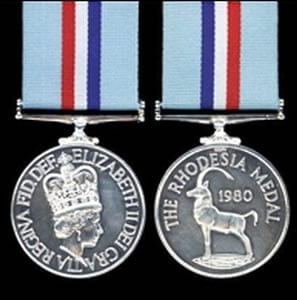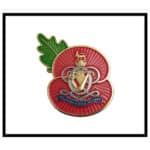Rhodesia 1979-80
In November 1979, Lt Col Rhoderick-Jones was summoned by the local Task Force Commander to be told that he and a Commonwealth Force of 1,200, including some 25 Irish Hussars, were to fly to Rhodesia to monitor a cease-fire between the Security Forces of the country and the two factions of the Patriotic Front who had, for nine years been at war.
After a number of false starts, Lt Col Rhoderick-Jones flew to Salisbury, Rhodesia, on the 21st of December, the rest of the party joining him before Christmas Day.
Operation AGILA, as it was called by the Commonwealth Forces, is now part of British Colonial history and the Irish Hussars played its full part, undertaking a variety of tasks including the monitoring of the Security Forces during the ceasefire, manning assembly places for surrendering members of the Patriotic Front, supervising the subsequent elections and liaising between the Governor, Lord Soames, and the leaders of the Patriotic Front.
The Commanding Officer had under his command, as well as an Irish Hussar party, some 350 other British, Australian and New Zealand officers and soldiers whose task it was to keep the peace in an area slightly larger than Northern Ireland.
Why not find out more about what life was like for the Irish Hussars that took part in this peacekeeping party?
The last of the Rhodesia (now Zimbabwe) party returned back to Tidworth in the March of 1980.
Campaign Medal
 The Rhodesia Medal was awarded for 14 days of service between 1st December 1979 and 20th March 1980.
The Rhodesia Medal was awarded for 14 days of service between 1st December 1979 and 20th March 1980.
This Medal was awarded to members of the armed services, police personnel and civilians who served in the multi-national force on Operation AGILA. The peacekeeping force monitored the transitional stages of Rhodesia’s independence in the run-up to the 1980 elections.


